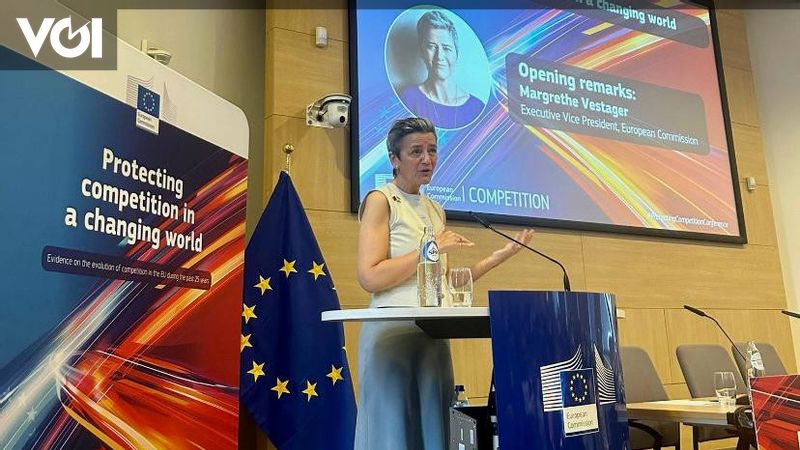JAKARTA – Microsoft’s partnership with OpenAI could face an EU antitrust investigation as regulators highlight their exclusivity clauses. While Google’s intelligence deal with Samsung also sparked surveillance.
EU antitrust regulators will seek additional third-party views, EU competition chief Margrethe Vestager said on Friday, June 28. These measures show discomfort among regulators around the world about how big tech companies capitalize on its dominance in new technologies, reflecting the market power of these companies in other sectors.
Vestager last March sent a questionnaire to Microsoft, Meta’s Google, Facebook, and ByteDance’s TikTok as well as other major tech companies over their AI partnerships.
“We have reviewed the response, and are now sending further requests for information on the deal between Microsoft and OpenAI. To understand whether certain exclusivity clauses can have a negative impact on competitors,” Vesteger said at a conference.
Reuters first reported that EU regulators were building a case that could lead to an investigation into the partnership between the two companies. “We are ready to answer additional questions that the European Commission may have,” a Microsoft spokesman said.
Microsoft’s partnership with OpenAI will not comply with EU merger rules due to lack of control, Vestager said. Although OpenAI’s parent is a non-profit organization, Microsoft has invested $13 billion in non-profit subsidiaries, which will be 49%.
Vestager also raised concerns about big tech companies blocking AI developers smaller than reaching users and businesses. “We are also sending requests for information to better understand the effects of Google settings with Samsung to install Gemini Nano’s little model on certain Samsung devices,” he said.
Google in January reached a multi-year agreement with South Korean companies to instill its generative artificial intelligence technology on Samsung’s Galaxy S24 series smartphone.
Vestager also said he was investigating “acquire-hires,” in which one company acquired another company primarily for talent, as exemplified in Microsoft’s US$650 million startup acquisition in March that allowed Microsoft to use the Inflection model and employ most of its staff. “We will ensure these practices do not escape our merger control rules if they essentially lead to concentration,” Vesteger said.

